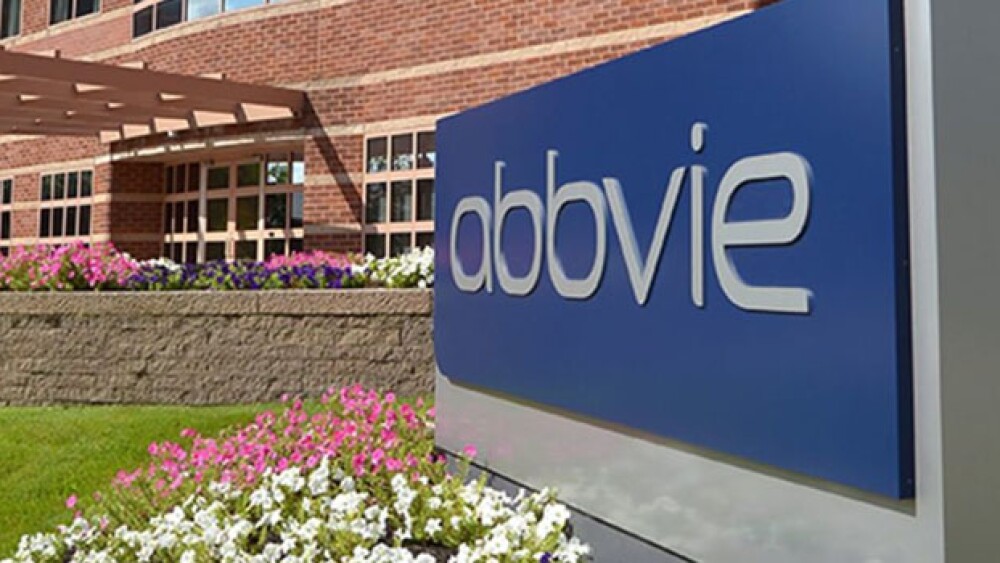AbbVie’s JAK inhibitor Rinvoq was approved by the U.S. Food and Drug Administration for the treatment of adults with moderately to severely active rheumatoid arthritis who have had an inadequate response or intolerance to methotrexate.
AbbVie’s JAK inhibitor Rinvoq (upadacitinib) was approved by the U.S. Food and Drug Administration (FDA) late Friday for the treatment of adults with moderately to severely active rheumatoid arthritis (RA) who have had an inadequate response or intolerance to methotrexate.
AbbVie anticipates getting its latest RA treatment in the hands of patients by the end of the month. That’s good news for the company as Rinvoq is largely seen as a successor to Humira, which generated about $20 billion in revenue for AbbVie last year. Humira is facing increased competition from biosimilars in Europe and will be challenged by those competing medications in the United States in 2023. Analysts have predicted Rinvoq could generate up to $2.2 billion in annual revenue over the next four years. Earlier this year AbbVie also scored FDA approval for plaque psoriasis treatment Skyrizi (risankizumab-rzaa), another drug expected to fill the revenue hole from Humira challenges.
Michael Severino, vice chairman and president of AbbVie, said the approval of Rinvoq marks an important milestone for AbbVie as it continues to develop treatments for rheumatoid arthritis, a chronic inflammatory condition that affects an estimated 23.7 million people worldwide.
Rinvoq, a small molecule JAK inhibitor, was approved based on data from the PHASE III SELECT study, one of five studies assessing the safety and efficacy of the medication. In that study, as well as others, Rinvoq met all primary and ranked secondary endpoints across a variety of patients with moderately to severely active rheumatoid arthritis. Study data showed that patients treated with Rinvoq experienced durable remission rates of their RA at week 26. Forty-eight percent of patients treated with Rinvoq alone in SELECT-EARLY and 41% of patients treated with Rinvoq plus methotrexate in SELECT-COMPARE achieved clinical remission at weeks 24 and 26, compared to 9% with placebo plus methotrexate and 18% with methotrexate, respectively.
Additionally, AbbVie noted that during clinical testing, Rinvoq significantly inhibited radiographic progression even without methotrexate. Patients taking Rinvoq achieved clinical remission, a state characterized by almost no disease activity and symptoms, even without methotrexate. Approximately 30% of patients treated with Rinvoq achieved clinical remission at week 12 in SELECT-COMPARE and week 14 in SELECT-MONOTHERAPY compared to 6% with placebo plus methotrexate and 8% with methotrexate, respectively. In the SELECT-EARLY trial, 36% of patients treated with Rinvoq achieved clinical remission at week 12 compared to 14% with methotrexate.
Roy Fleischmann, primary investigator of the SELECT-COMPARE trial, and a professor at the University of Texas Southwestern Medical Center at Dallas, pointed to the approval as another option in the treatment of RA. Despite the number of RA drugs on the market, Fleischmann said there are still a significant number of patients who do not achieve clinical remission or low disease activity, which is the goal of treatment.
“With this FDA approval, Rinvoq has the potential to help additional people living with RA achieve remission who have not yet reached this goal,” Fleishmann said in a statement.
While the approval of Rinvoq is good news for AbbVie, the class of drugs does have some safety concerns. In 2017, during clinical trials of Rinvoq, three patients who participated in the studies died. AbbVie said one patient who had pre-existing cardiovascular risk factors died from hemorrhagic stroke caused by a ruptured aneurysm while taking the 15 mg dose of upadacitinib. The news of that death was preceded by a report that two patients who died in a Rinvoq study.
Pfizer has also seen some concerns for its JAK inhibitor, Xeljanz. Earlier this year a post-marketing study raised concerns about pulmonary embolisms for 10mg doses of the RA drug.





